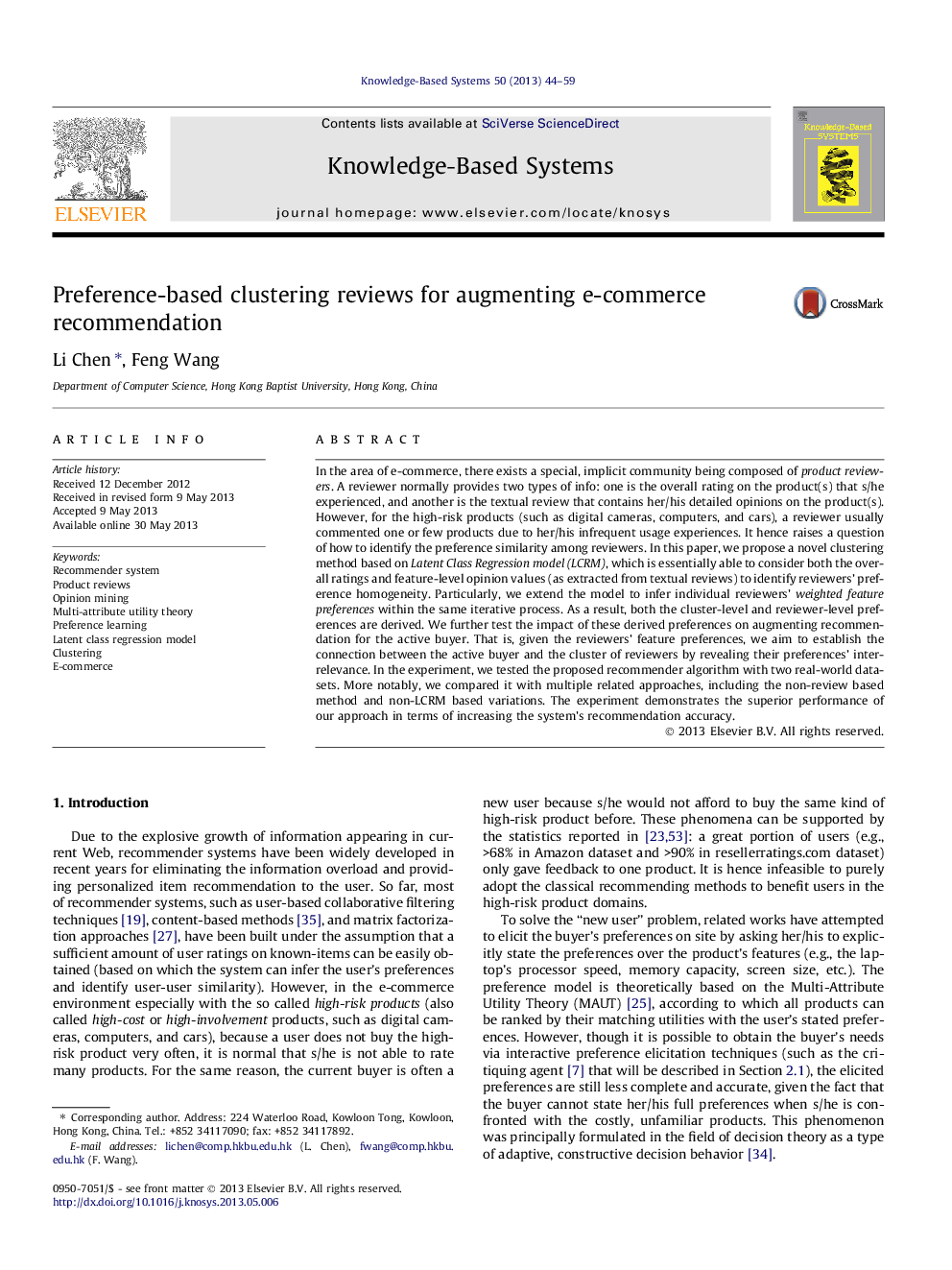| Article ID | Journal | Published Year | Pages | File Type |
|---|---|---|---|---|
| 6862783 | Knowledge-Based Systems | 2013 | 16 Pages |
Abstract
In the area of e-commerce, there exists a special, implicit community being composed of product reviewers. A reviewer normally provides two types of info: one is the overall rating on the product(s) that s/he experienced, and another is the textual review that contains her/his detailed opinions on the product(s). However, for the high-risk products (such as digital cameras, computers, and cars), a reviewer usually commented one or few products due to her/his infrequent usage experiences. It hence raises a question of how to identify the preference similarity among reviewers. In this paper, we propose a novel clustering method based on Latent Class Regression model (LCRM), which is essentially able to consider both the overall ratings and feature-level opinion values (as extracted from textual reviews) to identify reviewers' preference homogeneity. Particularly, we extend the model to infer individual reviewers' weighted feature preferences within the same iterative process. As a result, both the cluster-level and reviewer-level preferences are derived. We further test the impact of these derived preferences on augmenting recommendation for the active buyer. That is, given the reviewers' feature preferences, we aim to establish the connection between the active buyer and the cluster of reviewers by revealing their preferences' inter-relevance. In the experiment, we tested the proposed recommender algorithm with two real-world datasets. More notably, we compared it with multiple related approaches, including the non-review based method and non-LCRM based variations. The experiment demonstrates the superior performance of our approach in terms of increasing the system's recommendation accuracy.
Keywords
Related Topics
Physical Sciences and Engineering
Computer Science
Artificial Intelligence
Authors
Li Chen, Feng Wang,
